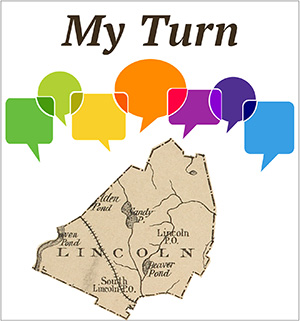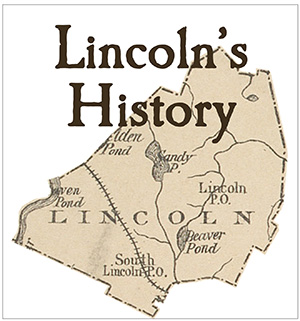By Barbara Slayter
Since 2021, when Gov. Baker signed the Housing Choice Act (HCA) requiring communities on transport lines connecting them to Boston to comply with zoning requirements that permit an increase of multi-family housing, I have been keeping an eye on both the proposals of the Housing Choice Act Working Group and various community responses. Recently, I have been trying to sort out the concerns and positions that have been expressed.
Keep Lincoln Green — Lincoln is being asked to rezone 42 acres. Lincoln’s total land area is 9,216 acres. Thus, the land under consideration for rezoning is 0.4 % of the total amount. Lincoln has 40% of its land in conservation. Keeping Lincoln green does not seem to me to be an issue. In fact, “a massive radical rezoning of a huge amount of Lincoln and letting the developers have at it,” as was asserted by a participant at the November 13 meeting, seems a considerable overstatement.
Overwhelming traffic — I live on Trapelo Road, an access road for Lincoln, and am very much aware of rush hour traffic which twice a day pours through Lincoln. I have also observed that at least 90% of the cars are occupied by only the driver and are moving from outside Lincoln to another destination outside Lincoln. The rest of the day traffic is light. I am persuaded that the increase of cars owned by residents in new housing around the town center will be a small part of the traffic problem Lincoln faces and that there are other ways we might deal with traffic flow concerns.
Red herrings — There are several red herrings, but one is particularly bothersome. It is the question of affordable housing. The HCA requires only 10%. We need to have more. Therefore, the argument goes, let’s delay compliance and figure out a higher percentage that the town can determine and control.
However, in my view, if we proceed now with enabling rezoning for 635 units, we shall at least be on the way to 60-plus possibilities for affordable housing, a better option than spending more time trying to figure out how to get there. I strongly support affordable housing, but I also see here the risk of allowing the “perfect” to stand in the way of the “good.”
A second red herring, in my view, is the notion that the town has no agency in the face of “the developers.” There are all sorts of regulations and checks, and I do not foresee Lincoln’s leadership simply “rolling over and playing dead.”
Timing — Timing can be a tool; timing can be a weapon; timing can be money; timing can provide opportunity; timing can “slow walk” a proposal or project into oblivion. One question about timing utterly perplexes me. People have complained that the discussion has been moving too quickly, that we need to slow down, that they are only now learning about this act and the decisions to be made.
This has been under discussion for nearly two years. Have they attended any of the several neighborhood discussions? Or the State of the Town meeting on September 8? (About 100 people only were present.) The HCAWG has provided “tons” of information and offered numerous opportunities for discussion. Do we need more time for this discussion? I don’t think so.
Worst-case scenarios — A number have been presented and most involve traffic lights, ugly multi-story buildings, and an increasingly brown environment. My personal worst-case scenario is the continuing decline of our commercial center if we do not move expeditiously to provide the context in which it can thrive. The HZAWG website offers compelling evidence for keeping the mall area within the zone for HCA compliance.
Let’s reframe this discussion and think of some best-case scenarios in which we have several handsome three-story apartment buildings attractively landscaped, park benches, a playground, another coffee shop, and other opportunities for residents to congregate in a charming and congenial setting.
Making the decision — Somehow, we must find our way between paralyzing caution and grave risk. I firmly believe that the HCA Working Group, the Select and Planning Boards, and the Rural Land Foundation have provided a path forward to do so. I have confidence and trust in their careful investigation of the issues, their commitment to the values of the town, and their judgment. Whether or not the designated working group and various boards add newly proposed options to the roster for discussion on December 2, I hope that we shall move forward with determination to address fairly and honestly the housing crisis that exists in the greater Boston area.
And if there is any doubt in the need to do so, I recommend perusal of The Boston Foundation’s recent housing report as well as a report published two years ago by the Century Foundation on discriminatory housing policies in Massachusetts. My first two choices for December 2 with Ranked Choice Voting would be Option C and Option D-1.
“My Turn” is a forum for readers to offer their letters to the editor or views on any subject of interest to other Lincolnites. Submissions must be signed with the writer’s name and street address and sent via email to lincolnsquirrelnews@gmail.com. Items will be edited for punctuation, spelling, style, etc., and will be published at the discretion of the editor. Submissions containing personal attacks, errors of fact, or other inappropriate material will not be published.







